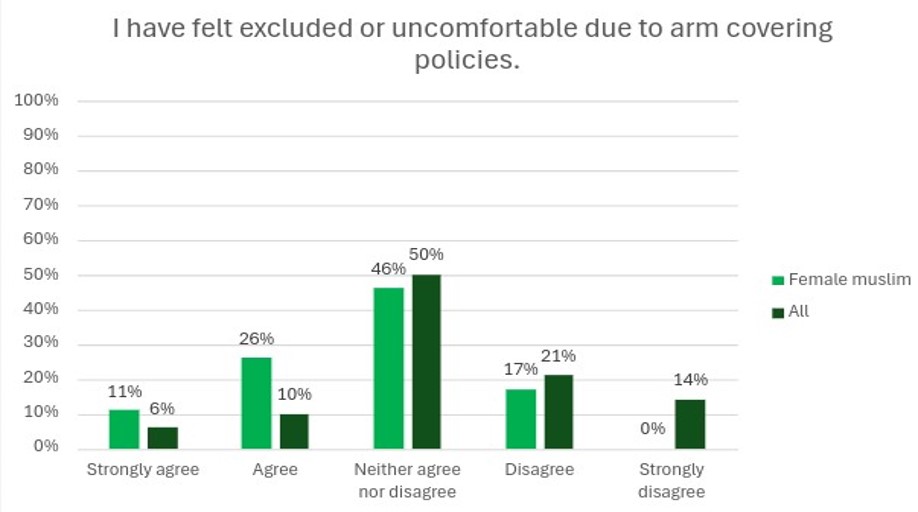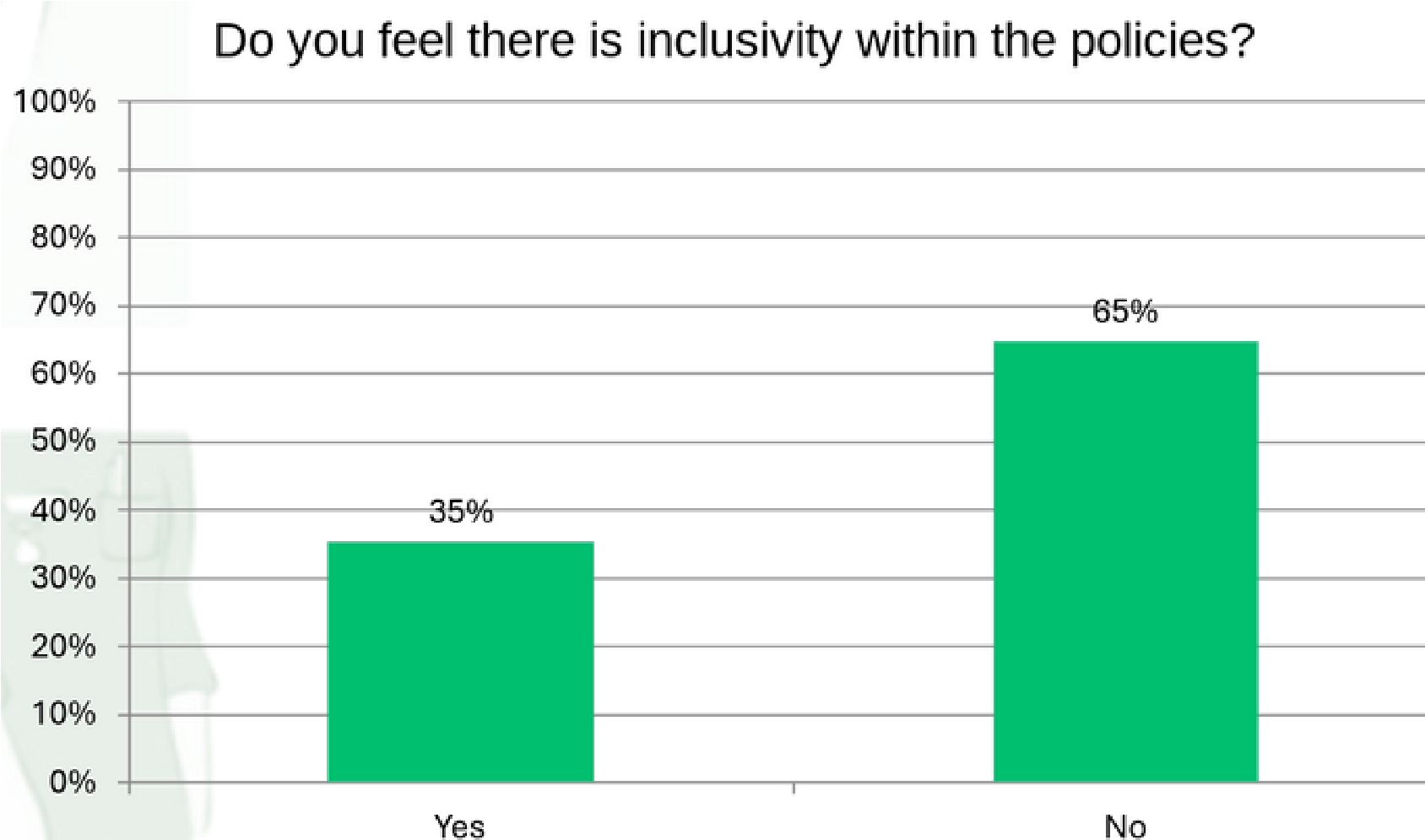Year 2 Clinical Pharmacology students Sureya Begum, Sam Campbell-Barr, Michelle Essiam, Rosemary Ndara, and Kahenat Kubari worked with Efthymia Papaevangelou, Lecturer in Cellular Pharmacology and Project Lead on a lodestone project to tackle an Equality, Diversity and Inclusivity (EDI) issue regarding arm coverings. The team investigated the rules and policies of different course across the university and across different NHS Trusts and analysed the discrepancies within the university and within Trusts.
For students at St George's Tooting Campus undertaking clinical placements, a mandatory student entry agreement includes arm covering rules in clinical spaces. However, these rules vary between courses and across NHS trusts making it difficult and frustrating for students who may have cultural, religious or personal reasons for covering their arms. Discrepancies in rules and miscommunication between placement providers and students create issues with equality, diversity, and inclusivity (EDI). These need to be addressed to create a more inclusive university environment where people from all groups are treated with respect.
We investigated this EDI issue by conducting anonymous surveys asking St George's students how they felt regarding the arm covering policies and whether those policies are inclusive. Additionally, we identified the differences within City St George's Tooting Campus/Trusts by analysing student agreements and policies and by talking with staff from different courses/NHS Trusts.
From our surveys we found that 65% of students felt that the policies were not very inclusive, as shown in the graph below.
This shows that the arm coverings policy within City St George's Tooting Campus/NHS trusts could be improved to be made more inclusive. We also found that 37% of Muslim females felt excluded or uncomfortable due to the policies. Overall, we think the rules and policies could be communicated better to students and alternatives such as disposable sleeves should be available for students who may feel uncomfortable with the bare below the elbows regulations.


With this information we produced a proposal of harmonisation in which we address the issue and suggest changes that could be put in place to create a more inclusive university and workplace environment.
Suggested changes include:
- Providing disposable sleeves for students
- Informing students about the options available in various ways including emails, tutor meetings etc
After presenting our findings to the Inclusive Education Monitoring & Advisory Group, a working group has been created to pilot a trial where the university will provide arm coverings to the Trusts for our students in clinical placements aiding to increase inclusivity and improve the student experience.